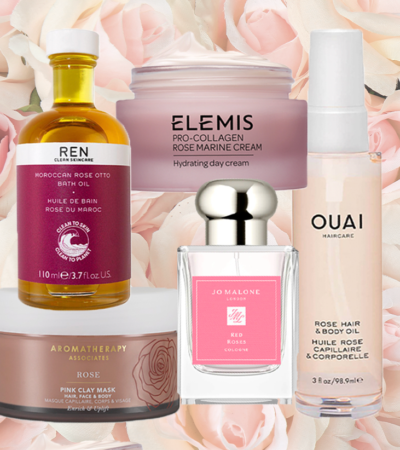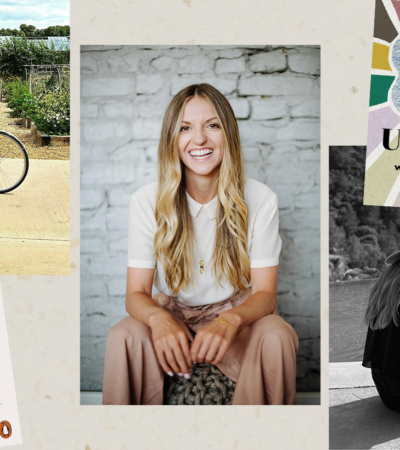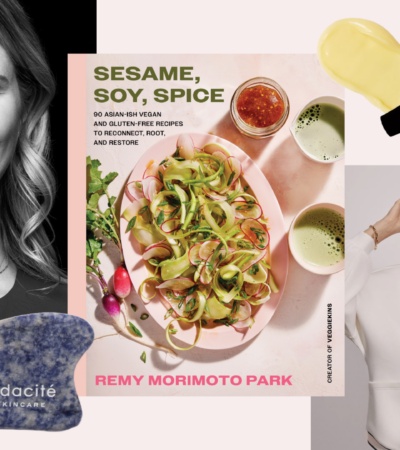Our Mid-Life contributor, Nicola de Burlet, delves into the art of longevity and discovers how we can all live our best lives… for a lot longer!
It is no secret that we are all living longer, but there are some among us who seem to have a superhuman gene that keeps them going longer than most. I write this as news that the last surviving member of the Dambusters mission, George “Johnny” Johnson dies at age 101. Our late Queen lived to 93 and my own mother is 92 and still going strong despite a bout of cancer last summer, we all joke in the family that she has titanium in her veins.
The MIT AgeLab was founded in 1999 to understand the challenges and opportunities of longevity and emerging generational lifestyles. Dr Joe Coughlin, Director at the facility says: “In 1900, life expectancy for much of the industrialized world was under 50. Today, living well into one’s 70s, 80s and beyond can be expected”. So, how will we spend those extra years? One of my favourite Instagram posts of recent times was a photo of Coronation Streets Dierdre Barlow in her tabard in the 1980s and Jo Lo swinging around a pole in a leotard in 2020 – both showing a very different face of 45 – it is therefore clear that this longevity requires new thinking.. and I for one, am IN!
Stats show that women live about 5 % longer than men which is attributed to our stronger immune systems, but also oestrogen that is said to combat conditions like heart diseases as well as helping to reduce harmful levels of cholesterol that can cause various serious health issues. Oestrogen also keeps tissues flexible, elastic and buoyant which is not only what you want for your face, but for your joints, muscles and veins as we age.
It’s never too late – think blue!
We can learn a lot from the world’s “Blue zones”. These are specific regions where people have been identified to live longer than average, having produced the most centenarians in recent years, these are Okinawa, Japan; Sardinia, Italy; Nicoya, Costa Rica; Icaria, Greece; and Loma Linda, California.
It seems that in terms of lifestyle, these areas have some key learnings that we could incorporate into our own lives to improve our own longevity. The good news is that these involve some simple tweaks to our daily routines that could make some big improvements to our overall long-term health.
Nutrition for longevity
A Mediterranean diet is a great place to start, think fish, olive oil, green leafy vegetables, nuts, seeds, and legumes. Emma Bardwell, Registered nutritionist and author of The Perimenopause Solution is an advocate for improving our gut health by reducing our meat intake and increasing the number of plants we eat, she says: “plants provide fibre for your gut microbes and encourage diversity. Increased microbiota diversity and robustness has strong links with increased health and wellbeing”. She also advises reducing ultra-processed foods with long shelf lives which are full of additives, emulsifiers, and stabilizers.
Remember when your granny said to chew your food a hundred times? Well, turns out she wasn’t wrong – eating slowly and with gratitude, are all part of the blue zone way of life. Tim Spector, in his book Food for Life, states that “we have lost our innate relationship with foraging, growing and producing food for health and wellbeing, and need to rediscover food as preventive medicine” there is increasing evidence that diet and a healthy gut microbiome can have a positive effect on our immune function. According to Emma Bardwell, having periods of time when we’re not eating (usually overnight) is important for repairing the all-important gut lining and for releasing anti-inflammatory signalling molecules that strengthen our immune system – so I am trying to eat my last meal of the day earlier (before 7.30 pm) and delaying my breakfast until 10 am to give my “gut bugs” a rest – to the amusement of my husband. I have friends who have been doing this for a while and have reported better sleep, more energy, sharper mental capacity, and improved digestion as a result!
Community and a social life
Staying socially active is important for brain health and in Blue Zones, where families tend to live in larger units, the grandparents look after the younger family members which in turn keeps them active for longer and part of a vibrant community, instead of isolated and lonely. For us, keeping up with friends and family and having an active social life is key to longevity, I find I am energised after a night out with friends and always wish I did it more often – note to self for 2023!
Exercise and stress management
This is one that I struggle with having always been a worrier and a gym avoider! Research shows that as we get older, it is less about HiiT (high-intensity interval training) where you do short violent bursts of activity followed by a rest period, and more about moderate, steady exercise that raises the heart rate and builds lean muscle – all very important for longevity. I try and vary my exercise routine to include resistance training and weights to challenge my muscle groups which is specifically important for women as we’re more susceptible to osteoporosis than men. Exercise is great for brain health as it oxygenates brain cells and increases something called brain-derived neurotrophic factor (BDF) which has been likened to Miracle-Gro for the brain.
Stress can be the biggest ager of all so don’t let it build-up
Blue Zone dwellers are big on this and manage it using meditation or regular siestas. Find your coping mechanisms – they are different for everyone but should be at the heart of every wellness regime, I find exercise works well for me and I am left with a real sense of achievement afterwards but for others, this might be a daily mindfulness session, a walk in the woods or booking in for a retreat.
Have a sense of purpose and challenge your brain
The Japanese word “ikigai” means a “life purpose” or “raison d’être.” A sense of purpose or a good reason to get up in the morning is key to longevity – many of us midlifers will be working for many years to come, which is good news for our brains, whether we like it or not but ikigai goes beyond earning a wage, think about things that really give you satisfaction outside of work and family life, maybe take up a new hobby or skill. Challenging your brain with new tasks, such as learning a language can be hugely beneficial for optimum longevity and dancing has been shown to be particularly good for this as it is not only social, but learning the steps and routines keeps the brain active AND listening to music releases endorphins! Strictly here we come …
What I have discovered through researching this piece is that, In terms of longevity, only a part of it is down to our genetics, the rest is up to you!
Some top tips
- Emma Bardwell recommends a mini health MOT – looking at your cholesterol, BP, folate, ferritin, Vit D, thyroid and B12. These are tangible markers that you can do something about.
- Check your hormone levels low levels of oestrogen are not beneficial to longevity
- Alcohol is not helpful for brain health. It interferes with the brain’s communication pathways and can affect the way the brain works. I have given up alcohol during the week and only drink on the weekends.
- Two ingredients that we will be hearing more about in terms of cognition and brain health are choline and omega-3 fatty acids (especially the DHA component). Choline is found in eggs and oily fish is a good source of omega-3. Both are available in supplement form. Look at Bare Biology for a good quality omega 3 – they do a fish-derived oil and a vegan algae oil option.
- Mpowder supplements created by Rebekah Brown and Dr Vera Martins, lead herbalist and naturopath, are a favourite of mine. Both blends contain several whole foods and botanicals that are known for their anti-ageing properties supporting the body’s nutritional needs as they change during menopause.
words by Nicola de Burlet














